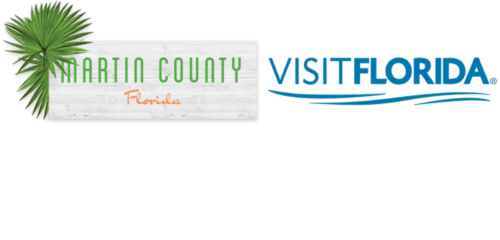A trip to the beach can be as educational as it is relaxing. There are few places as filled with wonder and mystery as the ocean. The unique creatures that call it home, the way it impacts many aspects of life, the surprises hidden below its surface—there are so many interesting ways to study and experience it.
Whether you’re surfing a wave, scuba diving to explore the world below the surface, or collecting interesting shells washed ashore, there’s a whole story that the sea is telling us, and even if you’re just taking a relaxing vacation to its beaches, it’s worth it to take a listen.
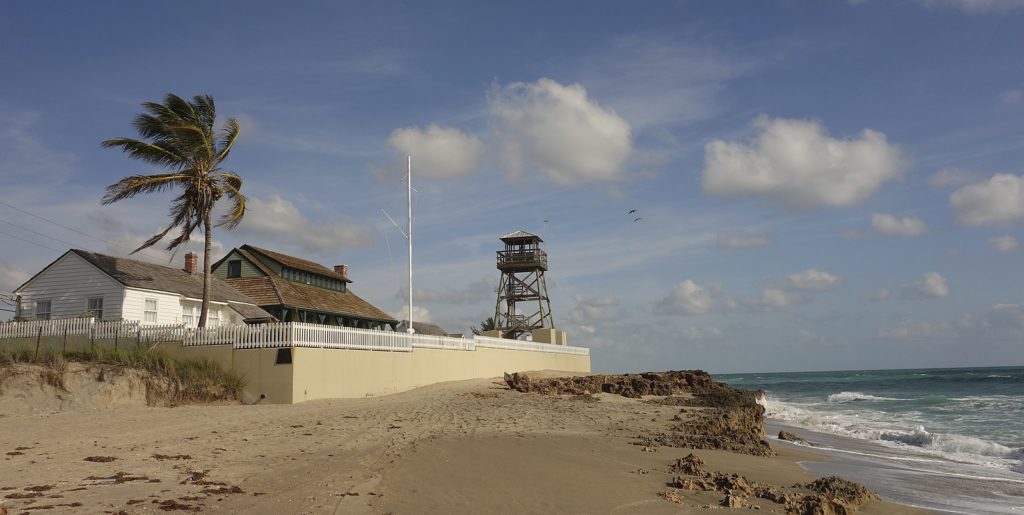
1. House of Refuge Museum at Gilbert’s Bar
The House of Refuge Museum at Gilbert’s Bar is a can’t-miss for any ocean-lover. Whether you love the history of seafaring adventurers, the animals in the water, scuba diving and snorkeling to explore a whole other world underwater, or just sitting on the beach and listening to the waves, you’ll find something here. This building is the oldest structure in Martin County, and is the only remaining house of refuge built along Florida’s eastern coast. Ten houses of refuge were run by the United States Lifesaving Service and served as havens for shipwrecked sailors and lost travelers back when the Florida coastline was sparsely populated. The house itself is a museum loaded with historic lifesaving equipment, and the keeper’s house has been restored to appear as it would have in 1904.
If you’re itching to get in the water, a mere 100 yards offshore is the shipwreck of the Georges Valentine. She was shipping a load of milled mahogany from Pensacola to Buenos Aires in 1904 when a storm blew her ashore. Despite the crew’s efforts to save her, Georges Valentine sank, taking five crew members with her. Fortunately, most of the people aboard made it safely to the house of refuge. To this day, the Georges Valentine Florida Underwater Archaeological Preserve remains a popular spot for snorkeling and scuba diving.
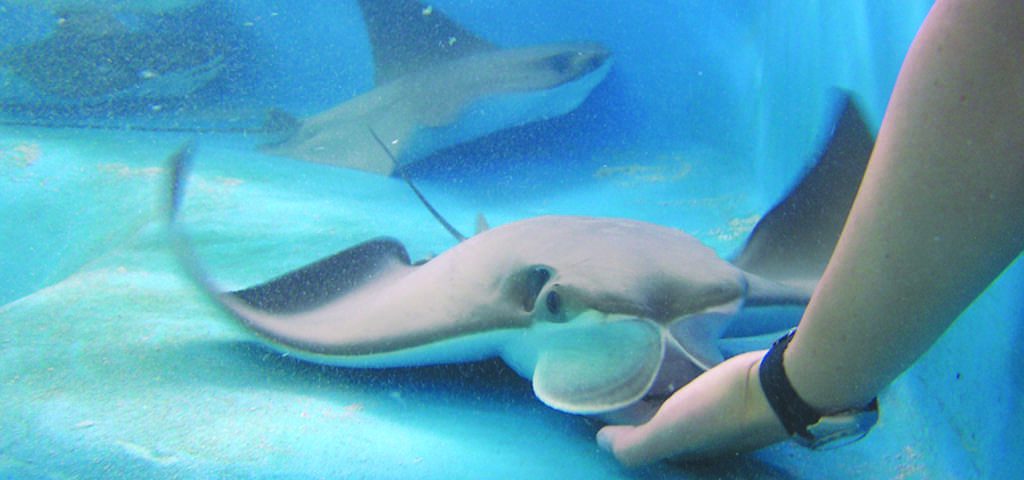
2. Florida Oceanographic Center
If you’re more into the science of the ocean’s ecosystem (or you just want to pet a stingray), check out the Florida Oceanographic Center. The 57-acre center dedicates itself to studying and educating visitors about Florida’s unique coastal ecosystems. The main exhibit hall features tanks that display local aquatic creatures in various Florida habitats. The Rays on the Reef display offers various interactive programs and feedings, and the Touch Tank Pavilion lets you get up close and personal with all kinds of animals.
A highlight of the center is the Game Fish Lagoon, which houses local game fish species, nurse sharks and non-releasable sea turtles. Outside, you’ll find two nature trails, a butterfly garden, and the sea turtle tent, which also offers daily programs to teach visitors about the adorable endangered turtles in the area.
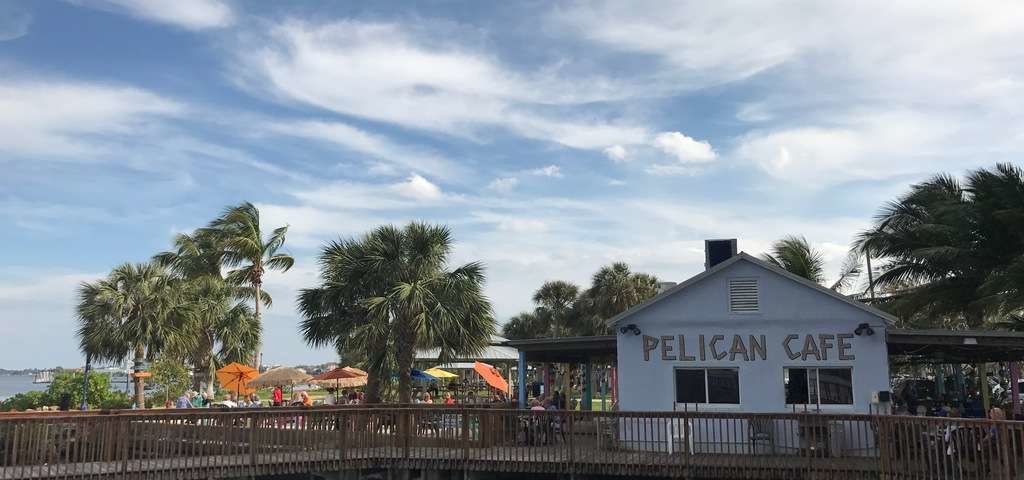
3. Stuart Riverwalk
Take a break from exploring with a relaxing stroll around Stuart’s Riverwalk. If you’re looking to just enjoy the water for a moment, this is the place. A boardwalk lines the St. Lucie River, winding past parks, restaurants, shops, and the historic downtown. If you’re getting around by boat during your trip, fear not! Public boat docking is free.
If you’re visiting between October and May, take advantage of free events including concerts, farmer’s markets, and more that occur weekly. Stop at a restaurant like the Pelican Cafe for a beer or some grub. At the Pelican, ask for a seat on the sand and enjoy island-inspired offerings, including an amazing Crunchy Mahi Reuben.
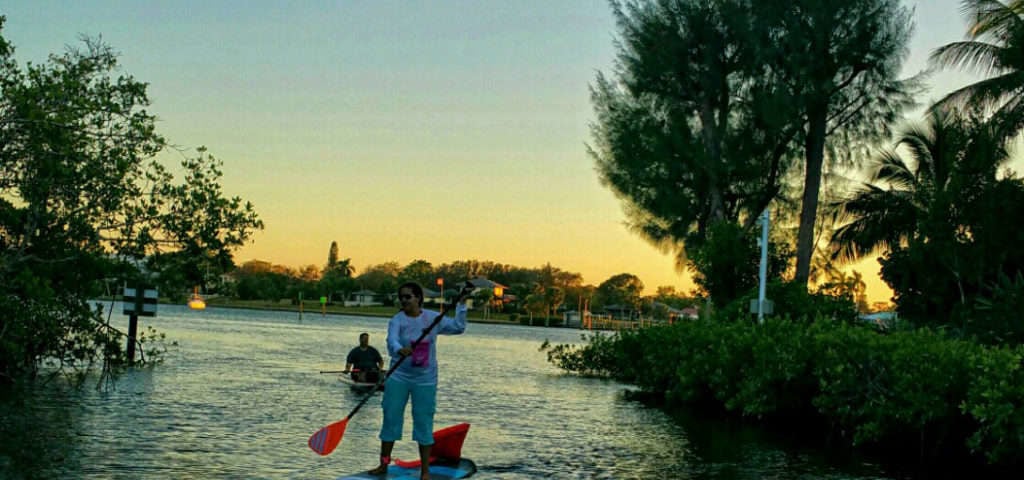
4. Zeke’s Surf, Skate & Paddle Boarding Sports
If you’ve never been stand-up paddleboarding, rest assured that it is as fun as it looks. Whether you’re a newbie or an old pro, Zeke’s Surf, Skate, & Paddle Boarding Sports will hook you up with whatever you need. Zeke’s offers guided tours (which come with lessons for beginners), along with rentals and equipment for purchase, and cool accessories (which make great souvenirs). The shop even offers sunset yoga on paddleboards, which is an incredible experience.
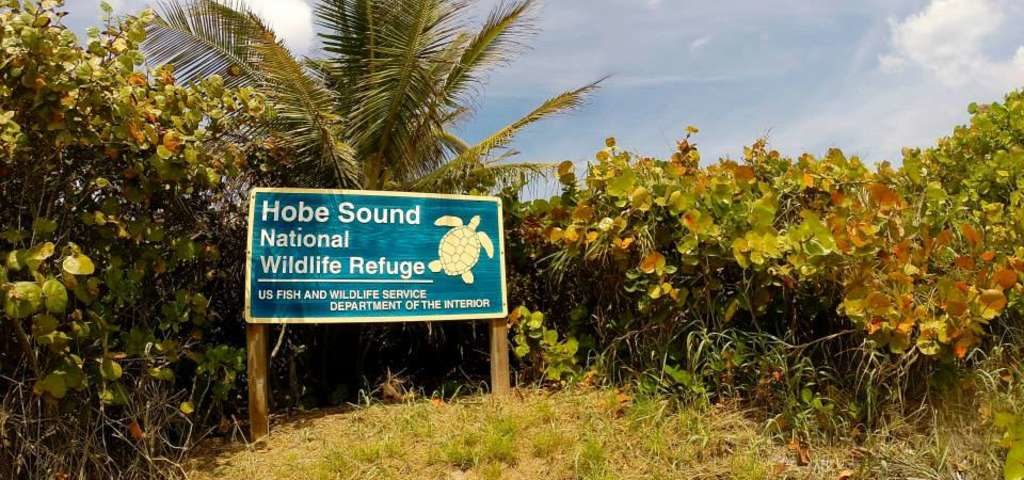
5. Hobe Sound National Wildlife Refuge
This part of Florida is well-known as a habitat for nesting sea turtles. Hobe Sound National Wildlife Refuge is one of the most productive sea turtle nesting areas in all of the Southeastern United States. It also provides
The visitor center is located on the mainland
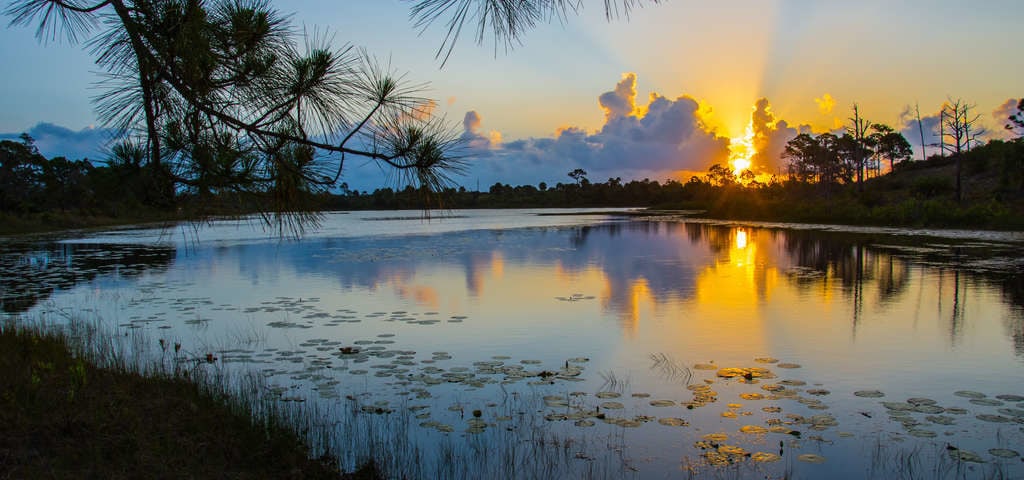
6. Jonathan Dickinson State Park
The rivers that empty into the ocean are very important to the ecosystem as well. Jonathan Dickinson State Park is along the Loxahatchee, and though it’s next to Hobe Sound, it feels like a whole other world entirely. River swamps and pine
Visit the Elsa Kimbell Environmental Education and Research Center to learn all about the natural and cultural history of the park, and then dive right in with a hike or a paddle on the river. For unexpected surprises, find a trail that meanders past the few abandoned remains of the land’s past as a top-secret WWII radar training school, or
Or simply climb to the top of the observation tower to take in the views. The campground here is pretty stellar, with lots of sites and amenities, so bring your tent or rent a cabin.
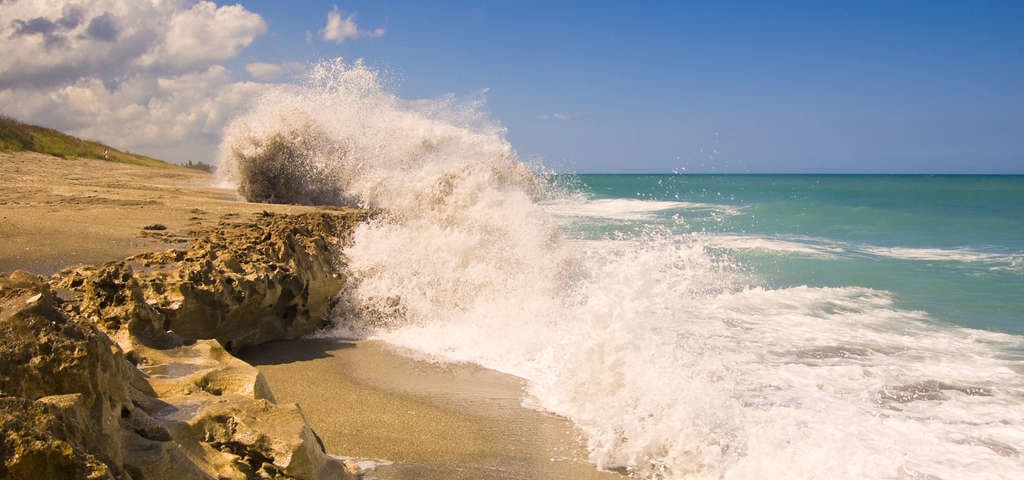
7. The Nature Conservancy’s Blowing Rocks Preserve
End your adventure at the Blowing Rocks Nature Preserve. Another swath of undeveloped beach, it features dunes, forests and signature “blowing rocks.” The rocks are Anastasia limestone, and at high tide, waves crash into them, tossing spray and spouts of water feet into the air. You’ll definitely see crabs and lots of birds, and if you’re lucky, you might spy sea turtles or even a Florida manatee. Go for a dip in the ocean here, or head to the preserve’s Hawley Education Center and take a walk on the boardwalk along the Indian Lagoon; it’s lined with informative interpretive signs.
The ocean is more than just a vacation destination; it’s a treasure that protects plants and animals of all kinds. From its role in the past to its place in the present and even into the future, the ocean and its habitat have always been important to preserve. As you adventure around and enjoy the natural beauty and incredible activities it provides, take a moment to appreciate the undeveloped beaches and organizations working to keep the ocean healthy for years to come.
